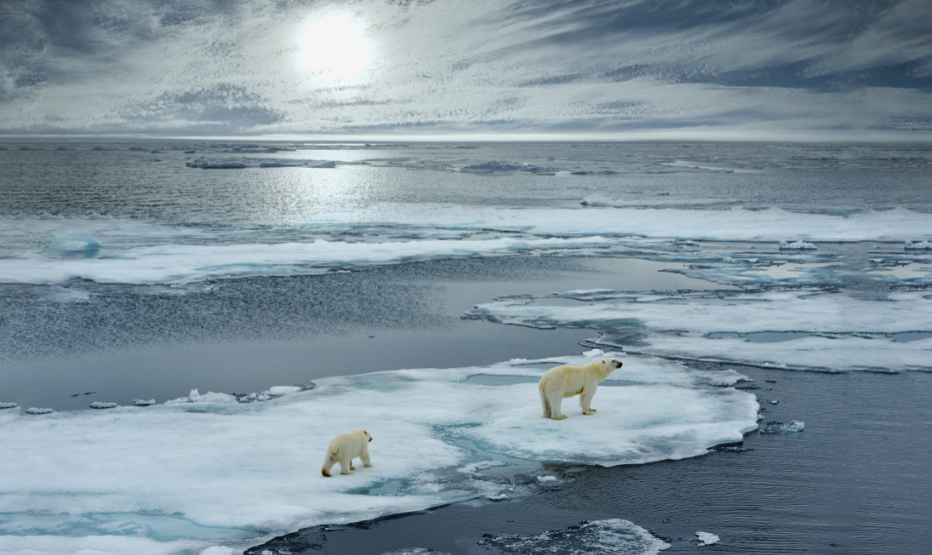On World Environment Day Dr Joseph Cook explores how researchers bridging environmental and computer science may emerge as the most effective agents in the fight against climate change.
The recent Covid-19 pandemic has given the planet a brief breather from human greenhouse gas emissions. Unfortunately, the long-term outlook for the environment remains bleak, likely including turbo-charged post-lockdown emissions, weaker policy, lesser funding and diminished public engagement. However, at the same time, there are technological tools that are emerging to upturn our troubled relationship with the natural world. One is the development of economically viable methods for generating renewable power. Another is the surge in computing power and environmental data availability.
Low cost cloud computing platforms are making it possible for small research groups and even individuals to access huge processing power that was until recently only available to big companies and institutions that could afford to build, configure and maintain on-site “big” computers. Meanwhile there is an unprecedented abundance and diversity of sensors measuring every aspect of the natural, built and human environment. This combination of data abundance and the ability to process it is changing the landscape of environmental science and exposing new opportunities to adapt to a warming world.
Armed with this huge data resource and processing power, innovators that can straddle between computer science and environmental science will lead the fight against climate change over the coming decades.
Take for example, the huge volume of data that is generate daily by satellites. There are hundreds of “earth observation” satellites orbiting our planet daily, monitoring weather, atmospheric gas concentrations, surface reflectance, cloudiness, temperature and taking photographs, among countless other measurements. There is far, far too much data to process manually; however, cloud computing and machine learning make it possible to automatically process all of that data in near real-time, alerting humans when there are interesting events or trends that we need to know about.
We are facing an increasingly uncertain future, making it ever more difficult to make good decisions for the future. This is true for individuals, governments, policymakers and businesses alike. However, increased computing power and data abundance are improving our predictions of our changing climate and our ability to test different future scenarios. This means we can make much more accurate assessments of the actions required to avoid the most catastrophic outcomes, or to test the best strategies to combat hazards such as sea level rise. Huge processing power gives us the ability to simulate complex systems, meaning we are gaining skill in linking environmental changes to real-world impacts including economics and public health effects.
My work focuses on the effects of climate change on the Arctic and Antarctic. With support from Microsoft, National Geographic and Rolex, I develop software that processes drone and satellite data gathered over glaciers and ice sheets and uses machine learning tools to interpret it. This means we can explain ice melting rather than simply measuring it, which in turn enhances our ability to predict and manage it.
Researchers bridging environmental and computer science may well emerge as the most effective agents in the fight against climate change. With better monitoring and more accurate predictions we can make better decisions and protect more people from the hazards of a warming climate. With more power to digest and visualize complex and diverse environmental data, we may be able to better communicate the changing climate to the public and to policymakers. In a warming world, computing the Earth may be fundamental to saving it.
Read about my work at the interface of environmental and computer science at my website www.tothepoles.co.uk
Dr Joseph Cook is Senior Lecturer in Computing in the School of Engineering, Technology and Design.
Dr Cook obtained his PhD from the University of Sheffield in 2012 and has over 35 peer-reviewed publications focused on the changing Arctic and Antarctic. His particular expertise is in developing software for predicting glacial melting and monitoring glaciers from the air and from space. In 2016 he was awarded a Rolex Award for Enterprise and was made a National Geographic Explorer in 2018. He also holds a Microsoft AI for Earth grant that supports his work using cloud computing and machine learning to process large volumes of satellite data over glaciers and ice sheets. At Christ Church, Joseph teaches Application Development in C#, Fundamentals of Computing and Database Development as well as individual project supervision.
 Expert comment
Expert comment Emma Grafton-Williams
Emma Grafton-Williams 1319
1319


